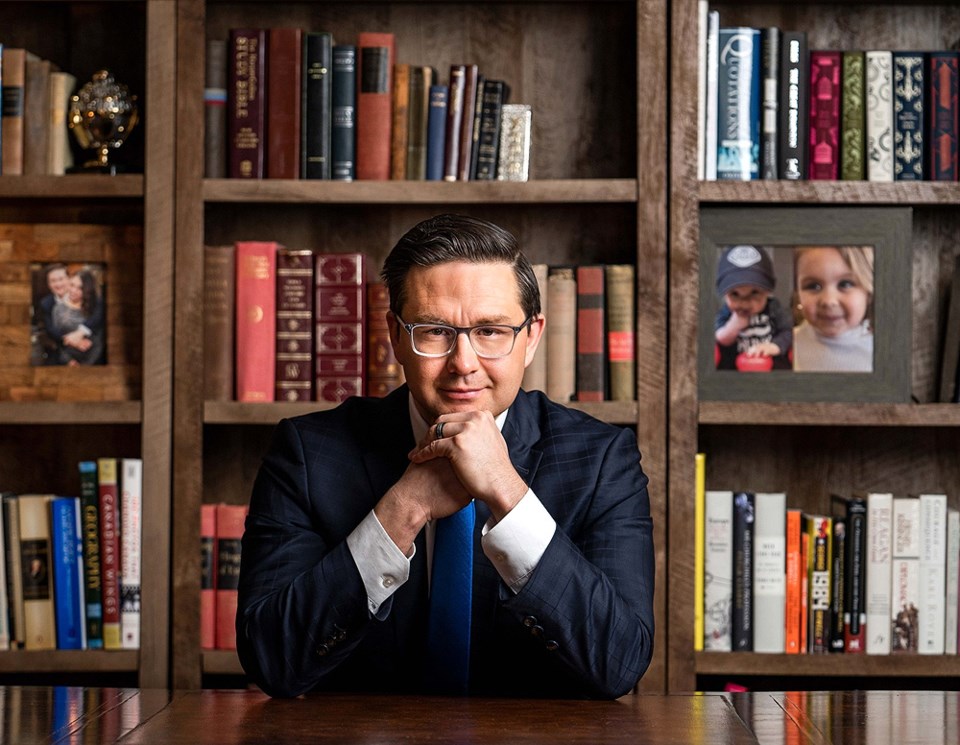Prior to the federal Conservative Party’s leadership convention this past weekend, the question wasn’t whether Pierre Poilievre would win, it was how decisive the victory would be.
Oh sure, you could have had an upset victory. There have been bigger political upsets than someone defeating Poilievre in this race.
But unless you like the longshot, betting on anyone other than Poilievre was not going to be a smart move, especially after his biggest challenger, Patrick Brown, was disqualified from the race.
Poilievre won decisively, picking up more than 68 per cent of the support to capture the electoral showdown on the first ballot. It’s a stark contrast from the previous two Tory leadership races, which went to the final ballot. (In the case of the 2017 leadership battle, with 14 candidates, it was a drawn-out process).
Poilievre has seemingly been the Tories’ leader-in-waiting for years. A lot of people wanted him to run for the top job ibn 2020, but he decided against it. This time around, it seemed like he was getting ready to make his leadership bid even before former leader Erin O’Toole was ousted in February.
He has a lot of the traits that you would want in a leader. He’s bright and articulate. He can be fiery and bombastic. Question period in the House of Commons will certainly be more interesting with Poilievre going after the Liberals.
He’s 43, so is approaching that ideal age range for a prime minister in modern times. Justin Trudeau was 43 when he became prime minister in 2015, while Stephen Harper was 46 when he was elected to the role in 2006.
And Poilievre certainly showed a willingness to work hard and meet the people. He criss-crossed the country during the leadership campaign. He didn’t just focus on the big centres. He went into small cities and towns. He learned about issues that mattered to people in all sorts of communities, rather than focusing on the large markets and the communities that dot the Trans-Canada Highway.
Poilievre’s election victory also marks a shift in Tory voting patterns. They moved away from the moderate conservatism favoured by O’Toole. Even 2017 leadership race winner Andrew Scheer was far more moderate than several of his opponents.
If he’s to be successful in becoming prime minister, Poilievre will need to follow the road map of Harper, who largely governed from the centre-right. Harper’s opponents often try to vilify him as being ultra-conservative, but Harper was not as far to the right as they portray him, or as conservative as he maybe wanted to be.
Poilievre is also going to have to ease up on the bluster and build bridges inside and outside of the party. While he represents the departure from the more moderate philosophy of O’Toole, there are still a lot of small-C conservatives within the party whose voices must be heeded. But Poilievre can’t forget those who got him into the leader’s role, either.
The initial days of the Tory leadership campaign were acrimonious, with Poilievre taking aim at his opponents, particularly Brown and Jean Charest. Once it became clear that Poilievre was a near lock, the rhetoric eased.
The leader of any national party is going to be tasked with making inroads with those who aren’t part of their base if they hope to succeed.
He’s going to have to convince voters in large, urban centres that they can support him, while not alienating his supporters. This was an area where O’Toole often fell short.
The good news for Poilievre is he has time. If the Liberal-NDP agreement holds, then we won’t be going to the polls for another three years.
It gives him time to connect with the moderate conservative vote. It gives time to return to the communities he visited during the campaign. It gives time for voters to get to know him, although with nearly 20 years of parliamentary experience, a couple of cabinet portfolios while in government and lots of time spent in the national spotlight while in opposition, voters likely know him pretty well by now.
He’s going to have to realize that bluster is fine, but he can’t win in Canada if he sounds like Boris Johnson or Donald Trump. The antics of those leaders don’t play well up here.
If we don’t vote until 2025, there’s no guarantee that Trudeau will still be prime minister. He’s carried the Liberals as far as he can. And if we do get an election before 2025, that might not be a good sign for Poilievre. It might be because the Liberals see an opportunity to get the majority government they so desperately covet.
Poilievre’s time as Conservative Party leader has finally come. It’ll be a while before we find out if he gets to take that final step.




